
Type Seven - Personality Formation
-
Type Seven is called “The Enthusiast - The Busy, Variety Seeking Type.”
To understand the Seven as a “personality type” it is helpful to hold what we learn about Sevens within their life story. The story of how the original sensitivity to joy set the life course of the Seven from childhood, how even as the personality constricts and distorts through life’s difficulties, it retains the essential orientation to being happy, and how the return journey is one of reconnecting to what was lost at birth- the lost essential quality that is imprinted on the soul.
There are nine of these stories, but they have in common this original “fall” and forgetting, this wounding and recovering, this mysterious pattern- and we hold the personality type with much more understanding and compassion when we remember this story.
-
“Born” sensitive to joy, the young Seven looks around their world and naturally sees a lot of sadness and suffering.
But how can a child sensitive to being happy and enjoying life, do anything about creating this in the world they are born into?
For every type on the Enneagram, it is important to understand that this is the original dilemma – we want to create a certain quality through the personality, and this is mission impossible.
Seven children are playful and fun-loving. They relish the joys of childhood. Young Sevens will like adventure, embrace new experiences and seem to naturally enjoy life. They may be the child who is quick to try new things, be willing to travel or sleepover at friends, go to camp and so on. They may have many activities and be enthusiastic about a variety of things, like to be busy and seem happy-go-lucky. They might be popular with friends for bringing fun and being playful. Families will find Seven children easy, independent and little trouble.
Most Sevens have early memories of their upbeat energy being somehow reinforced or valued in the family- they were encouraged or appreciated for their happy nature. Parents and other adults may fail to give the Seven child as much support and guidance as they need because they seem so independent and happy. It is not usually in awareness, but there is a way the young Seven believes others will not give them what they need. Trying to get what they want and need on their own becomes part of the pattern of creating happiness.
-
A person cannot create the essence they are sensitive to in the world. The essence already exists, and it is not the job of the person to create it- but we don’t understand this. Because we can’t actually create this essence at the level of personality, there is a twist or distortion that occurs.
The fundamental distortion of the Seven personality is that it takes on the job of creating happiness by seeking pleasure. The shift is from having a natural appreciation and gift for feeling happiness in the present moment, to feeling they need to go after the circumstances that will bring happiness. As happiness becomes something that will happen in the future, the Seven focuses on planning, knowing “what’s next” and needing something fun on the horizon. This anticipatory thinking removes the Seven from the present moment and paradoxically begins to prevent them from appreciating the pleasure of their current activity.
The next twist is that the Seven begins to avoid anything painful. So now chasing future pleasure also takes on the energy of jumping over anything negative or painful that might be happening. The inability to be with anything painful fuels the constant forward movement, and the pattern of avoiding anything difficult can begin to impact the Seven’s relationships and quality of life since of course life requires us to meet its pain and difficulties.
This core painful feeling is reflected in the Unconscious Childhood Message “It's not ok to depend on anyone for anything” - and in the Lost Childhood Message “You will be taken care of”.
Sevens have a pushy Inner Critic that demands they go after what they need, chase experiences and find things that will satisfy them. The Inner Critic message for Seven is “I’m good or ok if I get what I need”.
So, the personality becomes organized around the missing happiness in the world, the belief that they must pursue fun and excitement, that they must get their own needs met, and the avoidance of anything painful – a structure based on anticipation and moving forward.
-
The Seven is being assertive to get security - how does this work?
It can seem confusing to say that Sevens are “after” security because they don’t seem fearful or concerned with safety at all. They seem happy go lucky and adventurous. It is helpful to think of security for the Seven in terms of having their needs met, they want to know that they will be able to get what they need. The underlying fear can be understood as an anxiety that they are not going to get what they need, which is a fundamental insecurity to feel. Sevens push this fear out of awareness but it is still driving the bus.
Sevens are usually not aware that there is fear underlying their personality or that they are “after security” in life. It will take some work on their part to uncover this awareness because initially the Seven may buy into their own upbeat, happy image. Although Sevens may not recognize their anxiety, they will usually relate to the feeling of “frustration” and this is often noticeable to others. Sevens usually know that they don’t like to be “bored” or feel “trapped” and they may seem uncomfortable if they can’t keep moving. They may seem as if they “have ants in their pants”. Awareness of their frustration can be an opportunity to notice what painful feeling or difficult situation they may be trying to avoid and what is underlying the urge to keep pushing forward. This can be a doorway to understanding that below the surface there may be a basic fear and insecurity.
The assertive part of the Seven structure is straightforward- it is directly going after what they need (or think they need). The assertiveness of Seven is not really directed at others- it is more that they will pursue their own plans and push ahead to get what they want. Others will feel the Seven is in a hurry to move on, focusing on “what’s next”, and feel pressure to go along with the plans of the Seven. It is an assertiveness against the current situation that is not the one they want and a pushing ahead.
Another way of understanding this inner dynamic of the Seven is to recall that they are in the Head Center of Intelligence with Fear underneath. Sevens have what is called “anticipatory thinking”. It is in their thinking that they focus on “what’s next” and suppress any awareness of fear or anxiety. Their busy mental activity is sometimes called “monkey mind”. Sevens underutilize the Heart Center by blocking their feelings, especially sad and painful ones, so they can keep moving. Reconnecting to and tolerating their feelings will support them in being able to stay in the present moment.
The Chain Reaction for Seven
Soul is sensitive to joy
Losing contact with essence, the joy of Being in the moment
Personality forms around need to create happiness in their world
Do this by being assertive, pushing for things to happen that will fill their wants and needs
Issues of being unable to savour in the present and jumping over pain
The Spiritual Path of the Seven
This is a brief preview of the Seven’s spiritual journey in life.
A personality structure based on getting your needs met and wanting to be happy creates a future orientation and dissatisfaction with the current state. This explains why the return path of the Seven is to Sobriety. Sobriety means finding joy and satisfaction in the everyday and simple pleasures that don’t require anything exciting to happen, slowing down and savouring the present, being grateful.
This is the Seven in all of us, the part that chases what looks like it will bring future happiness, that wants to be filled up and satisfied and avoid the pain of life. Settling down into the present moment and finding we have enough is Sobriety.









